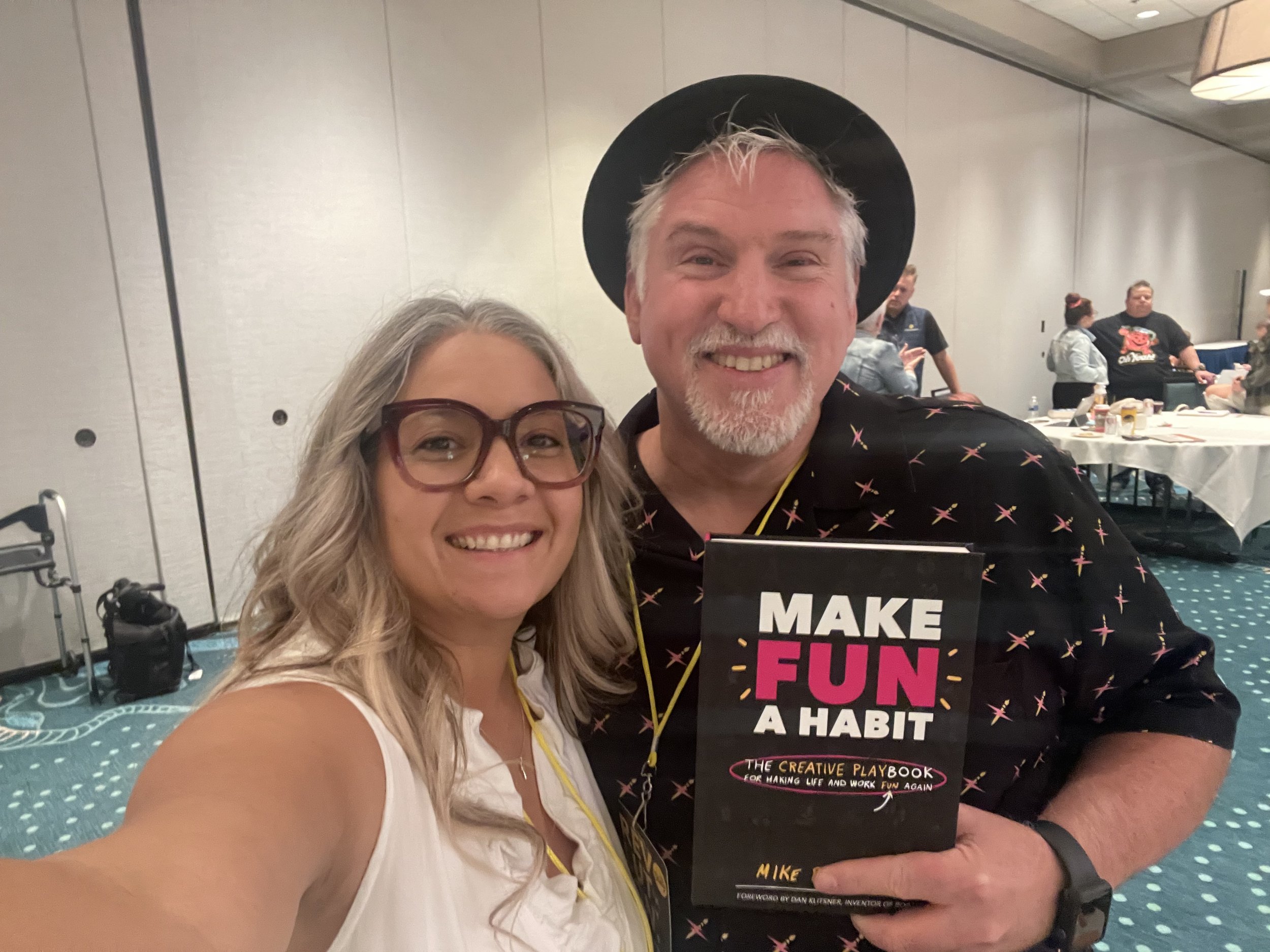Tips for How to Avoid Burnout for the Writer
Many writers are familiar with the famous story of author Victor Hugo most commonly known for his book “Notre Dame de Paris,” a.k.a., The Hunchback of Notre Dame. Hugo’s story has been used in such books as Atomic Habits by James Clear to showcase procrastination and motivate action.
It was a year past the deadline that Hugo had been given by his publisher, and he was no closer to writing his book than he had been on the day they commissioned it. He was completely blocked.
It was 1830, and Hugo enjoyed an active social life that kept him busy. Finally, the bookseller had enough and made Hugo aware of the fact that he was in breach of his contract. He would begin getting fined for each week that the project was delayed.
Realizing he has no other choice in the Fall of 1830, Hugo locks himself in a room with a new bottle of ink and a shawl that he has purchased. He locks his clothes up and forfeits the key, leaving his desk only to sleep and eat.
He wrote the last line of Notre Dame de Paris on January 14th using the last bit of ink he had left—quite a poetic end to the creation of this book. Many writers in my circle believe that Hugo procrastinated his way into a "no choice" corner.
When thought of that way, I can feel the stress rise. How about you?
"But we are creatives; we must write when the mood strikes." I'm sorry, but as a full-time writer, that's a train of thought that would keep me operating in constant stress.
Writers are a beautiful breed of creative people. We thrive on creative energy and on creating beautiful things for others. Julia Cameron, author of The Artist’s Way, states in her book, “As we are creative beings, our lives become our work of art.”
Do you think of your writing life that way? Do you wake up each day aware that your entire day will either aid or hinder your creative flow? Let's pause for a moment and talk about the warning signs and symptoms of burnout for the writer.
Symptoms of burnout for the writer
Forgetfulness
Difficulty Concentrating
Losing sight of yourself/your goals
Difficulty maintaining relationships/being present with loved ones/ feeling distracted
Frustration, irritability, general moodiness
Muscle tension, pain, fatigue, insomnia, oversleeping
Eye fatigue from looking at screens too long (hello, social media- more on this later!)
Here's an unpopular (but true) thought: our habits lead us to or help us avoid burnout.
Most of us would like nothing better than to blame someone else for our burnout—I'm not judging; my hand is up here, too! Guilty! At the heart of it, though, our habits can make us feel stressed out and exhausted, as well as emotionally and creatively spent. Can you say, "burnout?"
Writers sometimes operate under too much pressure—as do we all, right? It's especially important for writers to know how to protect our creative energies. We don't want to suffer creative burnout, and we certainly do not want to begin to loathe the very thing that lights us up.
DAILY Writing Habit
We can agree that consistent, healthy daily habits enhance our lifestyle. Two of my absolute, no-compromise essentials to keep my creative juices flowing and avoid burnout are a Daily Writing Habit and Creative Downtime.
At the beginning of my writing career, I did not prioritize my writing time. I let things bleed into it, I didn't set firm boundaries for it, I didn't put it in my calendar to protect it, and I let things creep in.
Then suddenly, it was the day before things were due or the night before my blog post should be up. The stress would pour into my body, and the work I created was not nearly as strong as if I had taken my time with it.
Could I get it done? Yes. Was it my best work? I'm not so sure about that. This pattern was a great way into writer's burnout and was altogether too much stress.
Lesson? Protect your time with a Daily Writing Habit.
Now, I protect my writing time. I write every day. And you should, too.
Do you have a designated writing time? Is this time non-negotiable, or do you fill that time with other things? Having time to work on your writing craft should be a top priority if you want to be a profitable writer.
Whether you are working on your next book or blog posts for your fans, you must have the designated time to work on your writing project. The more often you sit down to write, the better the quality of your work will be.
Good writing doesn't just happen, friends. Creating a strong writing habit doesn't just happen, either.
There is a huge difference in the mindset of someone accustomed to sitting down to deliver their best efforts on the page daily vs. someone who dabbles and expects greatness.
Take your writing seriously. Create a daily writing habit as a personal goal.
A great friend and fellow author, Kent Sanders, discusses how to create a daily writing habit in a recent post entitled, How to Build a Writing Habit in 2024.
He discusses these four things to help you do just that.
First, have a goal. It's impossible to work toward something if you don't know what you are working toward. When you sit down to write, have a goal in mind.
Next, make sure you have a place to write. A designated place that you can go to that triggers your brain (and turns on your creative), letting them know it's time to show up on the page.
Next, have a time to write. Morning bird? Night Owl? Doesn't matter. Pick a time, block it out on the calendar, and write.
Last thing, have a ritual, a.k.a. anchor ritual. Maybe it's your lucky pen. Maybe it's a playlist you love writing to. Your favorite cup of tea. Use these 4 "wheels," as my friend Kent calls them, and create an unshakable writing habit!
Now that you know the importance of protecting your time to create, let's talk about creative downtime.
Daily Writing Habit + Creative Downtime = Stronger, Faster Content Production.
Creative Downtime
When you create habits that allow you to feed your creative side while protecting the time needed to create, you can focus more on the content you produce.
This means you will produce more content in a faster period of time, with fewer interruptions from that pesky “writer’s block.”
I’m of the mind that productive downtime can transform your world.
Remember our Hugo story? While I think the year Hugo took claiming “writer’s block” was a tad dramatic, I do believe that the downtime allowed his creative energy to rebuild.
For someone like me who cultivates balance and clarity as a lifestyle choice, I would avoid the year-long break to rebuild my creative side. Instead, I would focus on daily restorative moments to transform my creativity. Short breaks go a long way!
My inner creative can count on having downtime to restore and refresh itself daily and my productive side can be assured that I can sit and produce when I need to.
Give yourself time to be creative. Remember, as a writer, your life is a work of art! Protect that work of art and the time you need to create. Take a short break multiple times throughout your day!
The sky is the limit when figuring out what to do during your creative downtime. Since I'm speaking to writers here... we are going to avoid writing during our creative downtime.
Mike Brennan & M.J. James at The Thing Orlando 2023.
Instead, look for other creative outlets to help infuse play and restore your juices. Paint. Play an instrument- doesn't have to be great, people.. it just needs to be fun! Listen to music- go to a concert. Take a hike. Take a bath. Play a board game with a friend who helps you belly laugh. Sit by yourself and meditate. Take a Tai Chi class. Find the most creative kid in your family and enjoy imaginative play for a few hours. Take a nap. Call your best friend and do something silly!
You get the idea... Spend time pouring into your creative with other mediums. Spend time pouring into your creative with rest (take regular breaks), a new atmosphere, and new sounds that engage your other senses. You get the picture!
Give it a try, what's the worst thing that could happen? You enjoy yourself? You feel refreshed? You come back to the page with brilliant new emotions and ideas flowing. Sounds like a great cure for emotional exhaustion, doesn't it?
Fellow creative and author of Make Fun a Habit, Mike Brennan is my go-to for all things fun. He has made a lifestyle out of pouring into his inner creative. As a result, he is a master creator. For more resources and ideas on how to infuse creative play into your daily habits, check out his website.
Community
Seek out other writers to create relationships with and SHARE!
Ok- I caution you here...Don't over-join writing groups. It's so easy to do, especially since Facebook has so many free ones. Pick one or two, max. Think clearly about what you want your writing group to do for you and your business.
Are you looking for support from other writers who understand the struggle? Yes, you are. So make sure that the group you join is filled with generous people.
Are you looking for help in growing a profitable writing business? Then, look for a group that accomplishes this.
Not every writing group is made the same, and while they all have value, they can often aid in splitting your time in too many places. Before you know it, you could spend more than half your time helping everyone else while your business (and creative side) takes a deep dive into burnout.
Once you find the right group, share your struggles and collaborate to create content to share with one another's audiences. Share your concerns, your wins, your goals, and your frustrations. Share and share alike!
Many writers begin to feel alone on their journey. This is unnecessary and can lead to negativity within your space. Having a positive place with others who are happy to share the journey with you can be an extremely empowering catalyst for your content.
Writer’s groups continue to pop up on small and large scales. My personal favorite is The Profitable Writer. This is a membership community filled with amazing and supportive creators. There is also a podcast; I highly suggest you add it to your morning (or night) routine!
There are lots of other things I could add to the list to help you avoid writer burnout, but I don't want you to be overwhelmed. Maintaining life balance is important, even when we are trying to kick hard things like chronic stress to the curb. This is a simple list to help you take the first step to a more peaceful and peace-filled writing career.
Simple changes, that's what I wanted to lay out.
Carve out and protect that daily writing time. Cultivate downtime ( free time, play time, rest time, laugh time) to help you rest and feed your creativity. Share with a group of people (mastermind group or writing group) who understand the journey.
That's it, my friends! Here are some very simple ways to help you avoid/ or reset from writer's burnout. Looking for more tips and tricks? Shoot me an email mj@mjjames.com or follow me on social media!



